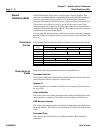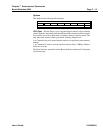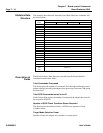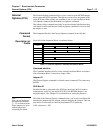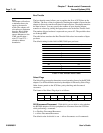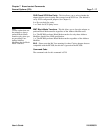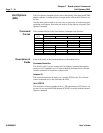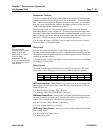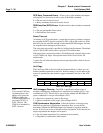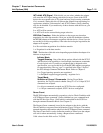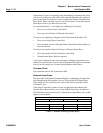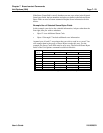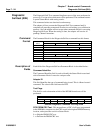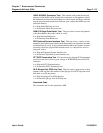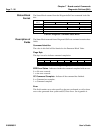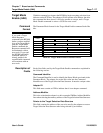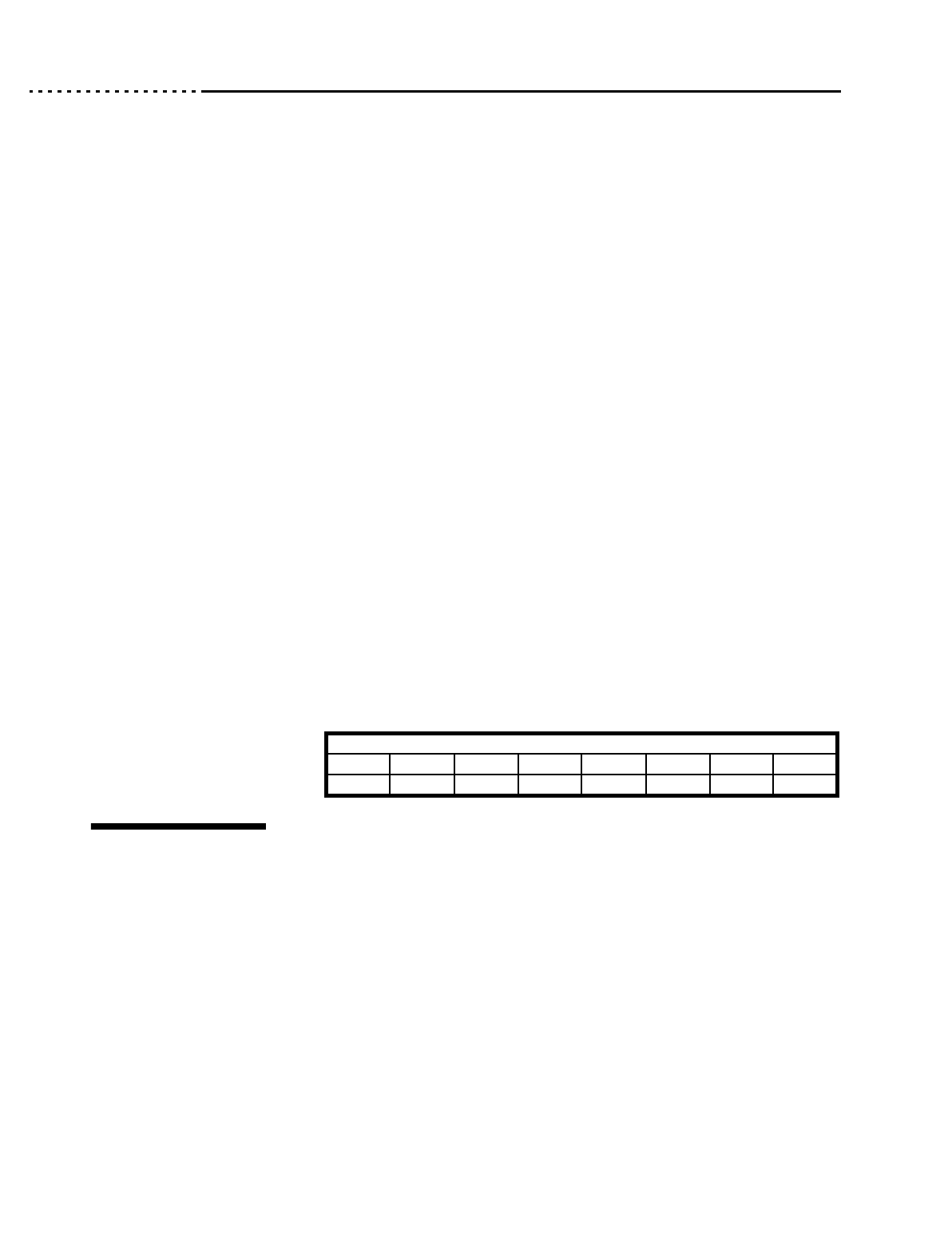
21020285 D User’s Guide
Chapter 7 Board-control Commands
Page 7 - 20 Unit Options (08H)
RCE Retry Command Errors - Allows you to select whether the adapter
will respond to a device error with a retry of the failed command.
0 ⇒ Do not retry for device errors.
1 ⇒ Retry commands that error from the device.
RBE Retry Bus (SCSI) Errors - Enables retries in the event that a command
fails.
0 ⇒ Do not perform Bus Error retries.
1 ⇒ Perform Bus Error retries.
Select Time-out
According to SCSI specifications, a target must respond to initiator selection
by asserting the BSY signal in response to SEL, with its ID on the bus. With
this field you can select the amount of time that the RF3880 adapter will wait
for response before timing out with an error.
The select time-out period is specified in 1 millisecond increments. The default
value is 250 (FAH), which selects a period of 250 milliseconds.
The longest time-out period possible is 392 milliseconds, selected with a value
of 392 (188H) Any larger value placed in this field will still select 392
milliseconds.
A value of 0 will select the shortest time-out period possible, which is about 1
millisecond.
Unit Flags
The Unit Flags field of the Unit Options Parameter Block is where you can
define command operation for the unit. With bit settings you can address the
issues of: synchronous data transfer, tagged commands, and use of the ATN
signal.
Note
If you set the TAG flag
(explained below) the
adapter will ignore the
UNQ bit. Setting the
TAG bit implies that you
are using a SCSI-2 or
SCSI-3 device. The
UNQ bit is intended for
SCSI-1 devices.
UNQ Untagged Queuing - The SCSI-1 specification allows issue of
multiple, simultaneous, commands to a target that has multiple LUN’s, one
command per LUN. This bit allows you to select whether the RF3880 will
queue commands to a target with multiple LUN’s.
0 ⇒ Send one command at a time to this target.
1 ⇒ Queue commands to this target; it has multiple LUN’s.
SYN Synchronous Negotiation - Either the initiator or the target may
introduce negotiation for synchronous operation. How you set this bit
determines whether the RF3880 adapter will attempt to negotiate with the
device. (Even if you do not set this bit to allow negotiation, if the other device
begins negotiation, the adapter will respond.)
0 ⇒ Do not initiate negotiation for synchronous data transfer.
1 ⇒ Negotiate for synchronous data transfer.
BITS
76543210
0 TAG 0 0 WID IAT SYN UNQ
Table 76: Unit Flags



